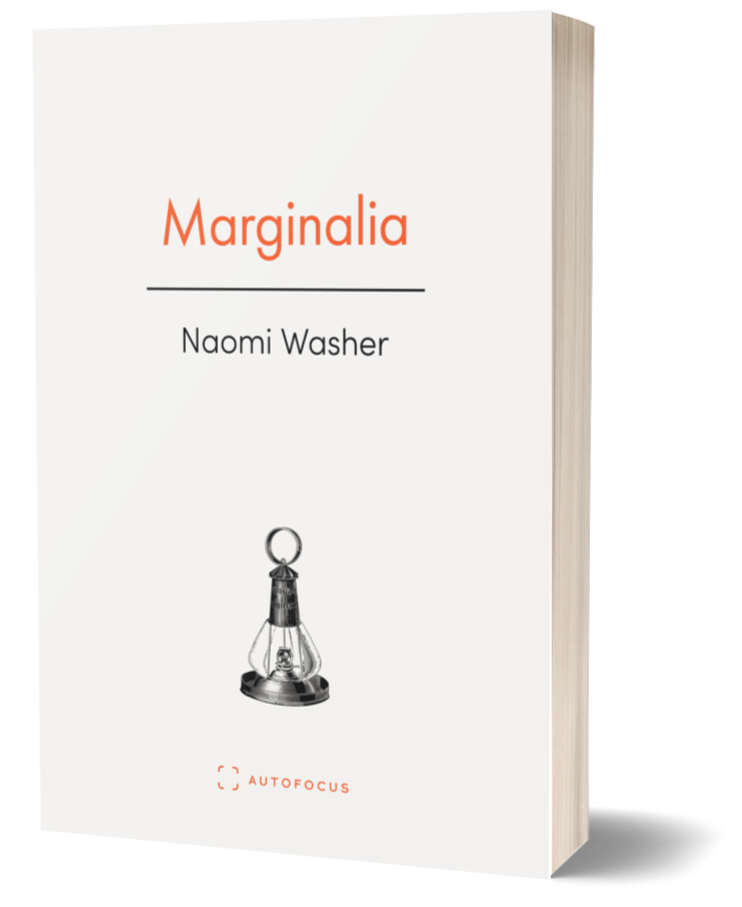AVAILABLE NOW
ABOUT THE BOOK
“What does it mean to dissolve into one’s text?” Naomi Washer asks in Marginalia: an autobiography. Comprised of a decade’s worth of notes made in the margins of other writers’ books, collected and arranged into an original work, Marginalia accumulates into an essay that interrogates both its own form and its author’s sense of self. From her own readings of writers like Kate Zambreno, Roland Barthes, Maggie Nelson, and Robert Walser, among countless others, Washer arrives at an uncanny rediscovering of a self both her and not, visible and hidden. And in the act of re-reading, she distills the experience of one’s ongoing transformation in writing and everyday life.
Praise for Marginalia
Praise for Marginalia
Mrittika Ghosh, Skunk Cabbage Books
“Naomi Washer’s introspective approach beautifully shows us that literature can be our most enduring and provoking companion. At once poetic and psychoanalytical, Washer’s fragmented curation of side notes keeps us hooked on the dialogue unfolding between past versions of herself. Marginalia is an original, intimate work that prompts reflection on how our relationships to books can change us, and how those ties evolve.”
Claire Donato, author of Kind Mirrors, Ugly Ghosts
“Naomi Washer’s Marginalia made me wonder what books she was annotating—and in that wondering, those books emerged like ghosts. I imagined a book’s margins as its hidden spine, quietly holding the text together. I love how Washer illuminates the invisible life of reading, and for how she conjures the intimate, unseen dialogue between reader and text.”
Deborah Shapiro, author of Consolation
“With Marginalia, Naomi Washer puts into words the offhand impressions, half-thoughts, and sensations that constitute our inner lives, that give them depth. Together, these collected fragments reveal how the act of reading shapes writing, or more generally, creativity, but also how it shapes a self, rendering the world legible. How reading works its magic in ways both formative and generative—you just might find yourself writing your own notes around the edges of this searching, beautiful book.”
Claire Foster, Type Books
“Marginalia is a book that interests itself in space both empty and occupied—the marginal space that surrounds text on the page and the physical space that surrounds its reader, who might also be its author. Washer understands that a room's grammars—the colors of its surfaces, the textures of its interruptions, and the windows that illuminate its corners—are responsible for the making of the reader inside it. Marginalia's narrator is this reader: a woman theorized in the third person, a self described in the second, and a fiction slouched into the first. Syntax, Washer underlines for us, is something to be worn like a black velvet dress.”
